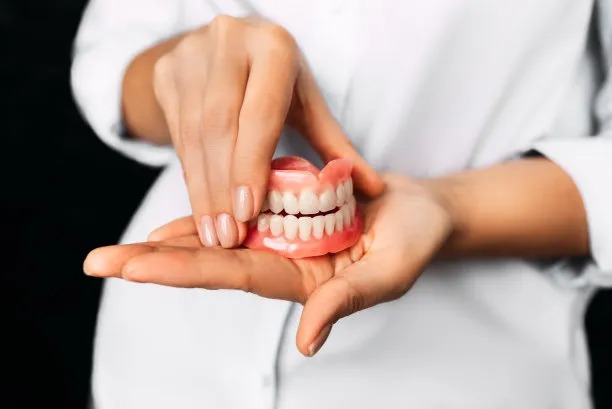Essential Guidelines and Precautions to Consider Before and After Dental Filling Treatments
Summary: This article provides essential guidelines and precautions to consider before and after dental filling treatments. Dental fillings are a vital component of restorative dentistry, allowing individuals to maintain their oral health and functionality. Understanding the processes involved, including preparation, aftercare, potential side effects, and follow-up appointments, is crucial. By addressing each step comprehensively, patients can better navigate their dental journeys, ensuring optimal results and a smooth recovery. Knowledge of these essential points helps promote confidence and awareness before undergoing any dental procedures.
1. Understanding the Dental Filling Procedure

Before undergoing a dental filling treatment, it is crucial to fully understand the procedure. Dentists usually perform fillings to restore teeth that have been affected by cavities or decay. During the treatment, the dentist will clean out the decayed portion of the tooth before filling the space with a suitable material such as composite resin or amalgam. Patients should ask questions regarding the filling materials, their properties, and the expected duration of treatment. This transparency helps build trust and eases anxiety.
Additionally, patients should discuss any pre-existing conditions or medications with their dentist. Some health issues or drugs can affect healing or recovery. It is vital for the dentist to be informed to modify the procedure or prescribe suitable medications to prevent complications. This communication can significantly impact the overall experience and outcome of the dental filling.
Finally, having realistic expectations is important. Understanding that dental fillings can enhance one鈥檚 oral health but may not restore the tooth to its original structure can help patients prepare mentally. Discussing potential results with the dentist can clarify any misconceptions and set clear goals for the dental treatment.
2. Pre-Treatment Preparations
Preparation before dental filling treatments is critical for ensuring a smooth procedure. Firstly, patients should avoid eating heavy meals shortly before their appointment. This is particularly important if local anesthesia will be used, as feeling numb can complicate eating afterward. A light snack is recommended, but it is best to follow the dentists specific instructions regarding food intake.
Additionally, patients should schedule the appointment at a time when they can relax afterward. Feeling rushed may elevate anxiety levels and lead to a negative experience. It鈥檚 beneficial to block out a few hours post-treatment for rest and recovery, eliminating the possibility of needing to rush back to normal activities.
Finally, it is advisable to arrange transportation, especially if sedation will be used. Having someone responsible who can take the patient home ensures safety and comfort. Knowing they have support frees patients from added anxiety about how they will get home after the treatment.
3. Post-Treatment Care Instructions
After receiving a dental filling, proper aftercare is essential for optimal healing. Initially, patients may experience numbness in the treated area due to local anesthesia, and caution should be exercised not to bite their tongue or cheek. Ideally, waiting until the numbness wears off before eating or drinking is crucial to avoid accidental injuries.
Patients should also be aware of possible temporary sensitivity in the filled tooth. It is common to experience sensitivity to hot or cold foods and beverages for a brief period following treatment. To alleviate discomfort, opting for lukewarm meals and avoiding extremely hot or cold stimuli can be very effective.
Lastly, maintaining proper oral hygiene is vital after a dental filling. Patients are encouraged to continue brushing and flossing regularly, but they should avoid the filled area for the first 24 hours to allow for any adjustments. Additionally, following any specific guidelines provided by the dentist is essential for ensuring long-lasting results.
4. Importance of Follow-Up Appointments
Follow-up appointments play a crucial role in monitoring the success of dental fillings. Even after a successful procedure, patients should schedule a check-up to ensure that everything is functioning correctly. During this visit, the dentist can check for any signs of issues like further decay or improper bite alignment that might occur after the filling.
Moreover, frequent check-ups help in maintaining overall oral health. Dentists can provide tailored advice about dental hygiene, recommend treatments if issues arise, and ensure that patients are not at risk for future cavities. Staying proactive in dental care aids in preventing more serious complications down the line.
Finally, follow-up appointments offer patients a chance to voice any concerns they may have experienced post-treatment. Whether it鈥檚 discomfort, changes in sensitivity, or questions about home care, addressing these issues with a professional can lead to quick resolutions and peace of mind. Open communication is critical for a positive dental experience and lasting dental health.
Summary:
In conclusion, understanding essential guidelines and precautions before and after dental filling treatments can significantly enhance the experience for patients. By preparing adequately, adhering to post-treatment care, and recognizing the significance of follow-up visits, individuals can ensure optimal recovery and maintain their oral health for years to come. Taking these steps will not only facilitate a smoother dental procedure but also promote a proactive approach to overall dental care.
This article is compiled by Vickong Dental and the content is for reference only.



